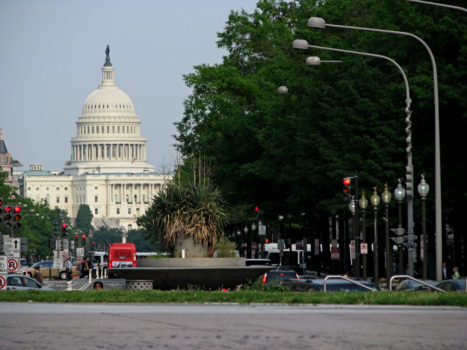DC Shuttle …
 Hearings & Markups of Interest
Hearings & Markups of Interest
(Due to current limited access to the U.S. Capitol complex, the general public is encouraged to view this hearing via the live stream.)
The U.S. House Education and Labor Committee will hold a hearing on Examining the Policies and Priorities of the U.S. Department of Education on Thursday, June 24 at 10:15 a.m.
Senators Introduce Legislation to Double Pell Grant. A group of Democratic lawmakers introduced legislation that would double the Pell Grant over the next five years. The Pell Grant Preservation and Expansion Act was introduced by Sens. Mazie Hirono (D-HI) and Patty Murray (D-WA) and Reps. Mark Pocan (D-WI) and Bobby Scott (D-VA). The bill would increase the maximum Pell Grant to $13,000 by the 2027-28 award year. The grant would be indexed to inflation for each subsequent award year. The legislation would also extend eligibility to undocumented students, Inside Higher Ed reports. (In April, NEBHE joined with the New England Council and several New England higher ed leaders and organizations urging Congress to double the Pell Grant maximum to $12,990 by the 2021-22 academic year and ensuring that the increase is permanent by making the increased portion of the grant an entitlement.)
House Committee Approves Research Bills. The House Science, Space and Technology Committee approved two bills that would reauthorize the National Science Foundation (NSF) and the Department of Energy’s Office of Science. The bills may now be considered in the full House. The first bill (H.R. 2225) would authorize an overall increase in funding for the NSF. The bill includes funding in fiscal 2022 of $1.4 billion to create a new directorate of Science and Engineering Solutions at the agency, intended to move research advances into technology applications more quickly. The second bill (H.R. 3593) would authorize $8.8 billion for the Energy Department’s Office of Science in fiscal 2022. The NSF bill also would boost investment in science, technology, engineering and math education from kindergarten through high school, reorient undergraduate education with job needs, offer mentoring for graduate students, and expand research opportunities for students attending minority-run universities. The bill includes provisions that would provide training to researchers receiving NSF grants regarding the kinds of foreign partnerships and collaborations they can engage in. It would also prohibit grant recipients from participating in foreign talent programs, especially those backed by the Chinese government. Another provision would ensure that Chinese students studying in U.S. universities are not eligible for NSF funding at certain high-level, secure computing facilities. The bill authorizing the Energy Department’s Office of Science would provide funding for fighting climate change, including research on energy storage, bioenergy technologies, fusion and carbon removal. The bill also provides for research in nanoscience, quantum computing and artificial intelligence. The Wall Street Journal reported, as well as AAMC (Association of American Medical Colleges).
Senate Holds Hearing on Education Budget. The Senate Appropriations Committee held a hearing on President Biden’s budget proposal for the Department of Education. Education Secretary Miguel Cardona testified before the committee in support of the president’s proposal to increase education funding 40%, to $102.8 billion. At the hearing, Sen. Joe Manchin (D-WV) expressed skepticism with a proposal for free college, Roll Call reports. Advocates have been monitoring Manchin’s potential support as it could be the decisive vote in any Senate debate.
House Holds Hearing on Land-Grant Institutions. The House Agriculture Committee held a hearing on 1890 land-grant institutions and heard from college presidents that Black land-grant institutions need more funding from Congress to update aging research facilities and expand programs that help them recruit students and researchers. Lawmakers suggested that the 2023 farm bill could make student scholarship funds to Black land-grant schools permanent and expand the number of institutions eligible for additional funding as Centers of Excellence. The college presidents also told the panel that broadband was inadequate in some of their rural constituencies.
We publish the DC Shuttle each week Congress is in session featuring higher ed news from Washington collected by the New England Council, of which NEBHE is a member. This edition is drawn from the Higher Education Update in the Council’s Weekly Washington Report of June 21, 2021. For more information, please visit: www.newenglandcouncil.com.
[ssba]
